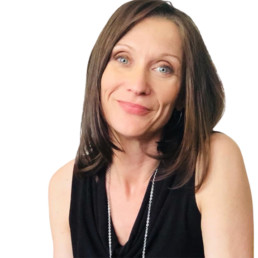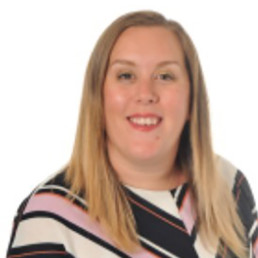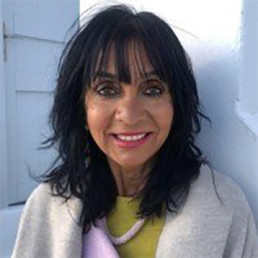The Cure for What Ails Us: Reigniting a Healthy Sense of Well-Being and Belonging in Schools

Written by Jennifer Johnson
As a parent, a former educator, an entrepreneur and a passionate change-maker, Jennifer is on a mission to empower young people to be their best selves to create a better world. She has an M.A. in Education in Curriculum, Teaching and Organisational Learning.
Since launching the Captains & Poets Program in schools in 2019 we have been exploring the ins and outs of what it means to be human – and all with the backdrop of a series of crises at home, at school and on the world stage.
The erosion of the social fabric in schools over the past two years has led to notable increases in issues around mental health and well-being, and in bullying and hate crimes. While the two may or may not be directly correlated (a topic for another blog perhaps), what they have in common is the unprecedented level of uncertainty, the minimizing of interpersonal connection, an absence of ritual, a sense of complacency and rudderlessness that has set in, the shrinking of young people’s worlds and the associated loss of opportunities for identity formation – do I need to go on?
The premise of the Captains & Poets program is that there is a unique Captain and Poet in each and every one of us that, in partnership, enable us to be our best, most authentic selves. And, when the Captain and Poet are operating in full partnership, we are better able to live from a place of “emotional courage” and “inspired action”. Today, we need Captains and Poets everywhere.
Emotional courage is about being brave enough to be vulnerable, to feel the uncomfortable emotions and follow your inner truth in the face of conflict with the outside world.
Inspired action is the ability to live from a place of meaning and purpose, where our values inform our actions, where we let our passions guide us. It is about truly being the change you want to see in the world.
To quote 12-year-old Sam in our documentary video: “When the Captain and Poet come together, they give you courage which is different than confidence. Because confidence is thinking you have the ability to do something, but courage is knowing what’s right in your heart.”
But how do we thrive when the world is in such a state of upheaval? One of the main things that keeps me afloat and even thriving in these times is having a sense of purpose and agency in the world with the work we are doing at Captains & Poets. As challenging and depleting and heart wrenching as these times have been, they have helped us peel the onion on what we all need, not only to survive, but to thrive. We are all at risk of developing the same set of symptoms in these times: languishing, anxiety, complacency, overwhelm.
What we have learned in the delivery of the Captains & Poets program thus far is that many of the issues society aims to remedy seem to lead back to the same thing – having a positive sense of identity in the world. The journey to Self is a lifelong one and at its core is self-awareness and the ability to connect with the world around us in meaningful ways that have a positive impact on ourselves and others.
The message we need to send to young people now more than ever is that they are whole, resourceful beings who have everything they need inside of them to thrive; and, that what they yearn for deep inside is similar in spirit to what others want. Perhaps now is a time in history where we can all draw on our collective Poets to guide us, and our collective Captains to bring that vision to life.
Imagine a world where we all lived from a place of emotional courage and inspired action. We would take care of ourselves and each other. We would derive an innate sense of belonging from the shared journey we are on. We would seek to understand before judging. We would be more fully expressed in who we are. Connection with ourselves, others and the world around us would be our lifeblood.
While it may sound idealistic, this is the human journey we are on. For some of us it takes a tragic event or a significant life change to connect more deeply with what matters most and to begin operating with a greater sense of purpose. But what if we could make having a sense of agency in the world more accessible for everyone?
Perhaps the cure for what ails us is closer than we think. The phrase we use to help young people embrace and celebrate their uniqueness is “We are all the same because we are all different.” We all want to be seen, to connect, to matter. And we all have a Captain and Poet inside of us ready to help us heal.
Diversity, Equity and Inclusion: Our Journey So Far

Written by Ruth Argyle
Ruth has been a teacher for 16 years and in her most recent role in ITT at KNSTE she is responsible for leading their Diversity, Equity and Inclusion focus.
Keele and North Staffordshire Education (KNSTE) began a journey of reflection, education and improvement in relation to DEI around 12 months ago. Back in the day we were all a little unsure of online working and when cameras were glitchy, backgrounds were chaotic and we all left ourselves on mute regularly. I then had the absolute pleasure of seeing Hannah Wilson of Diverse Educators speak at a NASBTT online conference. I was immediately and irreversibly inspired by her words. As an organisation we had taken our eye off the important issues that Hannah spoke about and it was time to refocus.
The timing couldn’t have been better. We rewrite our KPIs around March and this gave our work the impetus it needed to have real impact. We thought long and hard, consulting with many of our stakeholders about how best to concentrate our efforts in this area and we decided on three drivers for change:
- Marketing and Recruitment
- Our Curriculum
- Associate Teacher (AT) Experience.
We have been ambitious with our plan and have decided on working towards sustainable, internal change that will have impact for years to come whilst being mindful of resisting quick fixes that may ‘plug a gap’ but do not have long term impact. We didn’t want to buy in someone to deliver a one-off session for us, we invested in our staff and this involved a lot of CPD and big learning moments together. It may seem simple but even just deciding together on what order the letters in the acronym would go was significant. In the early days of this project we would use all manner of combinations of the letters: EDI, DEI, IDE… and would hear it said differently at different events and training we went to. Also, sometimes the E stood for Equity and sometimes it stood for Equality, sometimes people meant the D to mean Diversity, other times people were actually talking about Disability. We needed a shared language to ensure we had a shared understanding on what we were trying to achieve.
We worked as a team to collectively improve our understanding of the terms and what we could be doing as an initial teacher training and education (ITTE) provider. We have many responsibilities; responsibility to the trainees we train each year, a responsibility to the partnership schools and the employing leaders in those schools, a responsibility to the children in those classrooms and indeed a responsibility to the profession as a whole. It was and continues to be scary at times but to quote Hannah “we needed to get comfortable feeling uncomfortable” and work through it as a team. As public professionals we feel the weighty responsibility of creating a culture of belonging in our profession. We are mindful of the Equalities Act 2010 and the 9 Protected Characteristics and will work tirelessly to ensure that there is a place for everyone in our profession.
In the last 12 months we have made many positive changes. We have set up affinity groups for our alumni, training our Teacher Educators about DEI and our expectations of them when hosting a trainee, being more aware of our marketing and recruitment processes to consider elements such as neurodiversity and inclusivity and these are all having an impact within our organisation. Despite this good work we are advocates of the notion that we are lifelong learners. We know without doubt that there is more learning to be achieved, more work to be done and more improvements to make so that everyone who comes into contact with our organisation feels that sense of belonging which we are striving for. As we enter Year 2 of our 3-year action plan we are hopeful for continued impact and improvements and will continually self-reflect and be outward looking to achieve this.
Myth Busting Our Curriculum

Written by Meena Wood
Meena Kumari Wood is a former HMI (Ofsted), LA Adviser, FE College Principal and Principal of a Secondary Academy, is now a consultant, trainer and leadership coach across the British and International Education sectors.
The island of Zanzibar where I was born was famous – or infamous – on two accounts: clove plantations and slavery. From the 17th century until 1909, spice plantations were worked by Black Africans sold into slavery by Black African tribes to Arab Traders. Zanzibar, East Africa’s slave hub held slaves on Prison Island before transportation to other destinations (Frölich, 2019). The history of Black slavery is far more nuanced than one simply perpetuated by just Whites on Black Africans. Seventeen million East Africans were sold into slavery by Arab traders – a far higher number than those sold into transatlantic slavery. Yet it is usually more common within the History curriculum for students to become familiar with Britain’s involvement in the abolition of slavery in the 19th century, than with the financial benefit Britain gained from the slave trade in the two centuries beforehand.
The alienation of some Black Caribbean and Black African students may in part be attributed to a curriculum, where the contributions and histories of Black people in Britain are not incorporated or openly acknowledged in schools. A Values-Led History curriculum must present a balanced view of colonisation, the British empire and its impact on peoples from Africa, Asia and, nearer home, Ireland. The Windrush scandal report concluded that, in part, it happened precisely because of society’s poor understanding of Britain’s colonial history (Williams, 2018).
The challenge we face as educators is to have a radical rethink of our curriculum. Teaching history through source evidence is not a binary choice of good versus evil. Who chooses the ‘source evidence’ will decide the values and the narrative we want all our students to learn. Winston Churchill, while applauded for his second world war victory, also contributed to atrocities in the empire. During the great Bengal famine (1943), millions died as rice was exported to elsewhere in the empire (Tharoor, 2018). Churchill, however, blamed the famine on Indians ‘breeding like rabbits’ (Safi, 2019).
Generations of young people have been taught that Britain was an intrinsic force for ‘good’ against Nazi tyranny and, therefore, ‘saved the world’ from the forces of evil in the first and second world wars. They may now believe that the British empire was a force for only good. Many children still believe that WW2 was ‘won’ by the British’, and not through a massive world-wide coalition.
Following the Brexit vote in 2016, I met with a class of predominantly White British students; 13-year-olds jubilant about ‘leaving Europe’ and goading another student to ‘go back home to Poland’-reducing him to tears. Their reasoning was that their grandparents had died freeing Britain from the Europeans and now they wanted their freedom from Europe! A mishmash of ignorance and distorted history viewed through their families’ lens influenced these young students and, sadly, resulted in the racist taunts they meted out on fellow East European students.
How do these same children now view the Russia Ukraine war as this may not even be discussed in schools? Don’t our children have the right to be taught that the multifaceted prism of history is a prime influencer on our present lives?
Our students must learn in history and geography of the importance of the unity of the European nations in fighting tyranny and fascism, alongside the role of the ANZAC, African and Asian troops, and what finally led to establishing the European Union. Its continuing relevance to Britain today, now outside of Europe, is key as we face yet another war in Europe.
In our schools we cannot simply continue ‘celebrating diversity’ through famous iconic figures such as Mandela and Gandhi, or scheduling well-intentioned activities during Black History month. Respecting ‘Heritage Matters’ through the curriculum means opening all students’ horizons. Global cultural influences are best threaded through a school curriculum that showcases prominent achievements of a diverse range of individuals in every subject. There is no shortage of inspirational, credible role models.
In science, we can refer to the first Black American African female astronaut Jemison in space (1992). In mathematics, Mohammed ibn-Musa al-Khowarizmi (773 AD) demonstrated the zero in algebraic equations, and by the ninth century, the zero had entered the Arabic numeral system, as we know it today. This example can sit alongside the German mathematician Gottfried Leibniz’s invention of the Step Reckoner ( 1671); a calculus based on the binary system, the genesis of the computer. What about Katherine Johnson, a Black American mathematician, referred to as a ‘computer’? Her calculations of orbital mechanics ( armed with pencil, paper and slide rule), as a NASA employee was critical to the success of the first U.S crewed space flight.
We must empower a nation of young people to be truly proud of their individual and collective heritages. All German schoolchildren learn in history about the holocaust . If knowledge is power then we must enable all our White, Black and Asian children to become more knowledgeable and to learn of the myriad facets of their history. In our classrooms, White British students need to know the contributions made by other nations to the UK economy and society. For instance, if they learn of the British Empire, are students aware of the lasting legacy of the East India Company’s employees in ‘acquiring’ riches, and investing these in Britain’s finest 18 century buildings, even ‘buying’ a seat in Parliament? Thomas Pitt, famously founded the dynasty of two Prime ministers (William Pitt and his son) through the purchase of a diamond, whilst he was Governor in India.
Perpetuating a polarised view of Britain’s role in global history risks creating schisms in our society and risks prejudice, racist attitudes and actions. These are counter to young people developing global citizenship in 2022 and beyond; especially important at a time when the world is shrinking its geo-political boundaries.
To gain deeper understanding and apply the knowledge they learn, young people must acquire critical literacy skills. Only through becoming critical thinkers and readers can they interpret the nuances of history for themselves and come to realise that we are all united more by our similarities than our differences. Atticus Finch, in Harper Lee’s novel To Kill a Mockingbird, sets this as a key life lesson when he tells his daughter,
“You never really understand a person until you consider things from his point of view . . . until you climb into his skin and walk around in it.”
This is how we can hope to create future generations who aspire to change society for the better.
References
Tharoor, S. (2017) Inglorious Empire: What the British Did to India, 1st edn., London: C. Hurst & Co Publishers.
Frölich, S. (2019, August 22). East Africa’s forgotten slave trade. Deutsche Welle [online]. Retrieved from https://www.dw.com/en/east-africas-forgotten-slave-trade/a-50126759 Safi, M. (2019, March 29). Churchill’s policies contributed to 1943 Bengal famine – study. Guardian. Retrieved from https://www.theguardian.com/world/2019/mar/29/winston-churchill-policies contributed-to-1943-bengal-famine-study
Tharoor, S. (2017). Inglorious empire: What the British did to India. London: C. Hurst & Co Publishers.
Williams, W. (2018). Windrush lessons learned, Independent review [HC 93 2020-21]. London: House of Comm
Wood, M. and Haddon, N. ( 2021) Secondary Curriculum Transformed; Enabling All to Achieve; ( Routledge)

